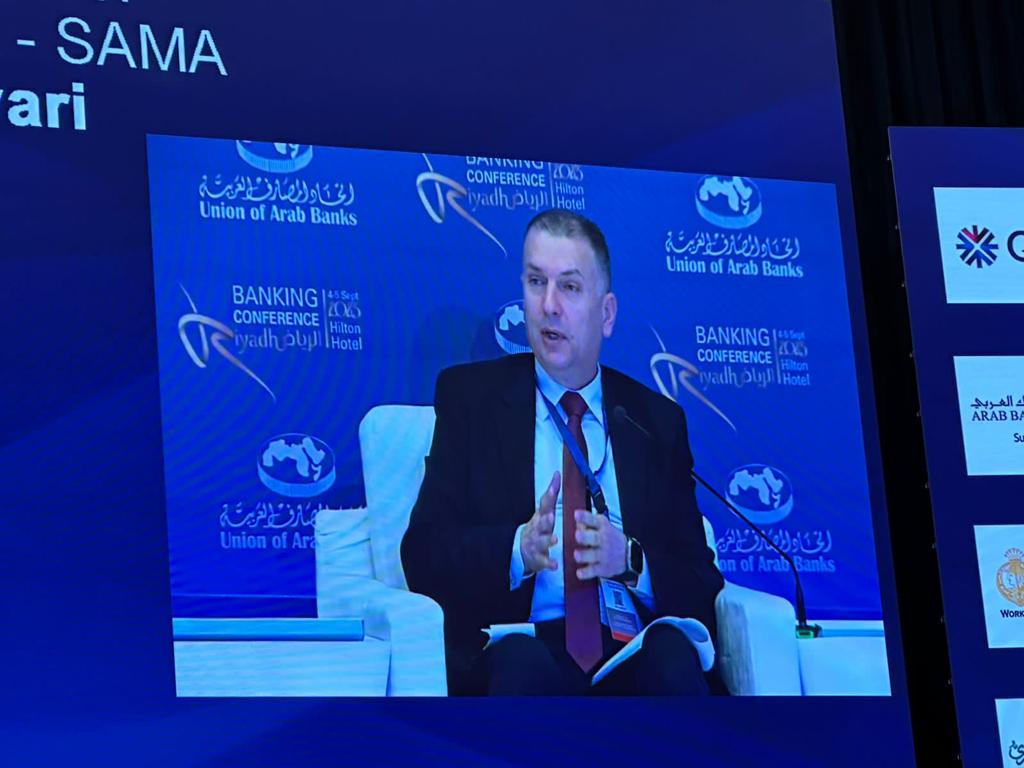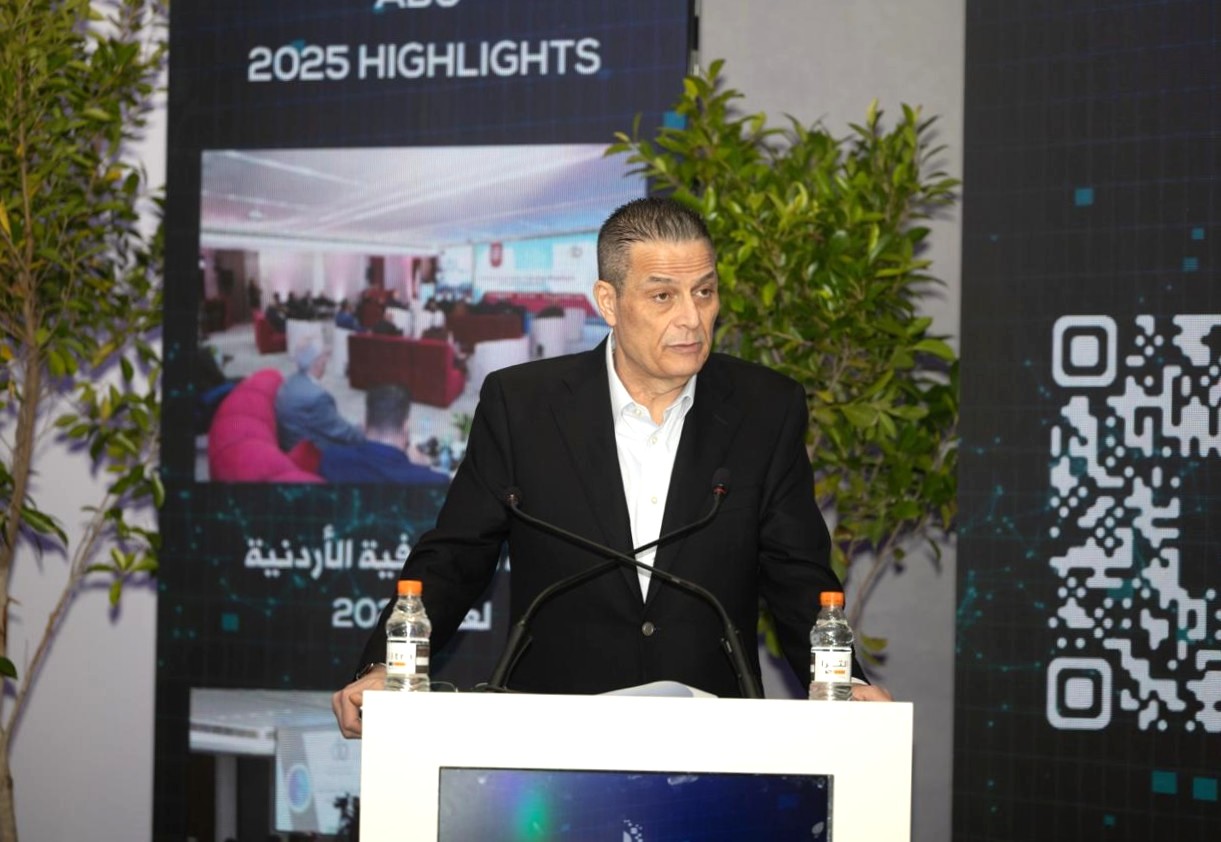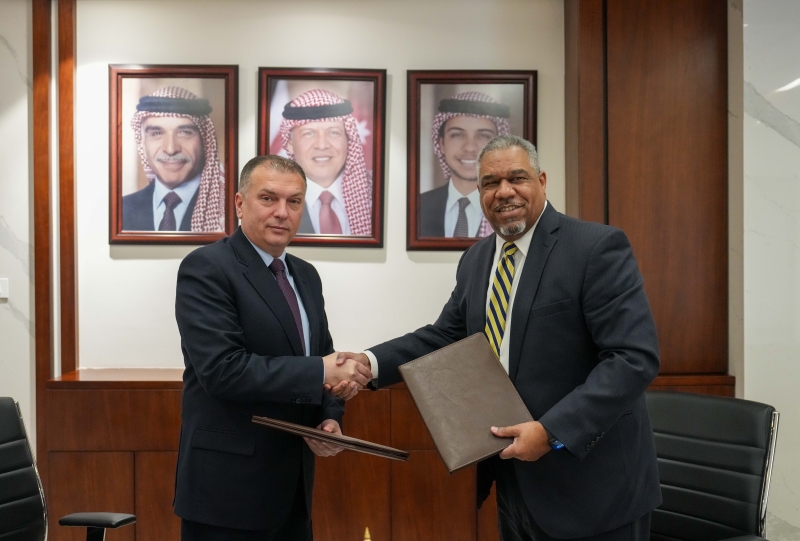
Dr. Maher Mahrouq, Director General of ABJ, participated in the Arab Banking Conference 2023 themed “Arab Economic Prospects in the Light of International Changes.” The conference, organized by the Union of Arab Banks, took place in Riyadh, Saudi Arabia, on September 4 and 5, 2023. It was attended by a large number of leaders from the Arab and international banking and financial sector and was held under the patronage and presence of the Governor of the Saudi Central Bank, Mr. Ayman bin Mohammed Al-Sayari.
During his participation in the session “Opportunities for Economic Growth in Arab Countries,” Dr. Al-Mahrouq spoke about the challenges facing the Arab region in terms of growth and development. These challenges include political and security stability, demographic changes, weak investment, public finance challenges, low economic growth rates, and the complexity of Arab economies. Other challenges include unemployment, water and environmental issues, climate change, food security, and social, educational, and health challenges.
Al-Mahrouq highlighted the important role of fiscal and monetary policies in leveraging their tools to achieve economic objectives, primarily economic development and addressing economic challenges, redirecting Arab economies onto the right path. He noted that during the COVID-19 pandemic, the primary fiscal and monetary interventions amounted to about 4% of the Arab countries’ GDP, aimed at maintaining economic activity and avoiding stagnation.
Al-Mahrouq stated that fiscal policy measures in Arab countries focused on social support and providing emergency financial support programs. Monetary policy measures included liquidity injections, interest rate reductions, loan restructuring, and deferrals. He reviewed Jordan’s case, where measures taken by the Central Bank of Jordan constituted about 8% of the GDP.
He also pointed to the role of Arab central banks in maintaining a balanced and flexible stance towards local and global economic developments and changes, contributing to supporting economic growth in Arab countries. Al-Mahrouq clarified that monetary policy measures ranged from accommodative policies to support economic growth during the COVID-19 pandemic to more stringent policies to combat inflation and price increases in the last two years. He affirmed the pivotal role of the Central Bank of Jordan and the success of its monetary policy in maintaining monetary stability and the attractiveness of the Jordanian Dinar as a savings currency, enhancing confidence in the Jordanian economy and providing fertile ground for economic sectors to grow.
In his closing remarks, Al-Mahrouq spoke about the contribution of Arab banks in financing growth and development, focusing on the role of the Arab banking sector in providing necessary financing to priority sectors. He mentioned that the credit facilities provided by the Arab banking sector reached 2.3 trillion dollars, constituting 71% of the Arab GDP. Al-Mahrouq noted that banks in Jordan provide financing exceeding the Jordanian GDP, directed to individuals, economic sectors, and the government, ultimately improving consumption, investment, government spending, and export activities, and directly reflecting in economic growth through the expenditure cycle. He pointed out that the facilities provided to SMEs in Jordan constituted 11% of the private sector facilities, reflecting the clear role of banks in providing financing to this sector. Al-Mahrouq also discussed various initiatives undertaken by banks, such as launching funds for financing existing and emerging SMEs, and the Jordan Capital and Investment Fund aimed at investing in promising companies. He touched on the latest banking developments related to achieving economic development, including green financing and the evolution of financial technology.





